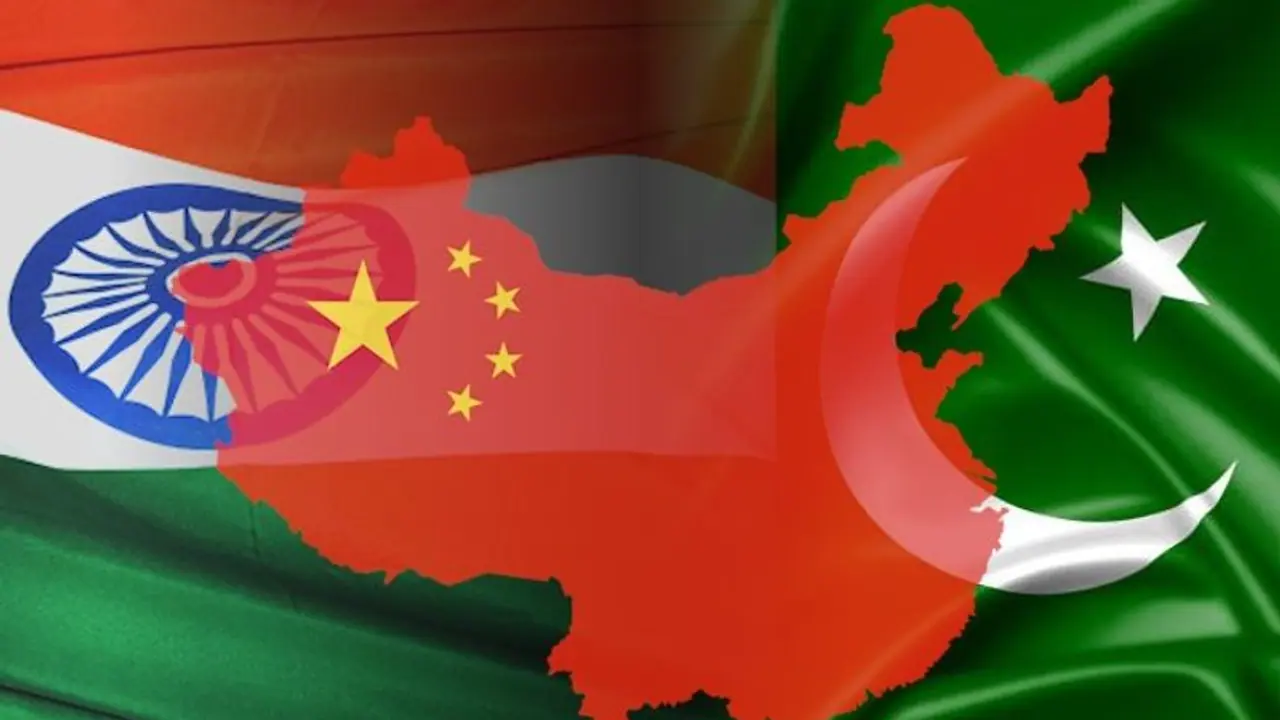The peace talks reduce tensions in one of Asia’s top flashpoints, where three nuclear-armed countries regularly challenge each other’s territorial claims.
In a surprise move, after a year of some of the worst fighting on India’s frontiers with Pakistan and China, all three countries are suddenly talking peace as they wait to see how US President Joe Biden will shift policy in the region.

After rounds of talks on the disengagement process at the border, on Thursday, India and China’s foreign ministers discussed plans to disengage troops from their Himalayan border, which last year saw the deadliest clashes since the 1970s.
The phone call between S Jaishankar and his Chinese counterpart Wang Yi, which stretched for more than an hour, came shortly after India and Pakistan released a rare joint statement by senior army officials announcing a halt in operations along their border.
The peace talks reduce tensions in one of Asia’s top flashpoints, where three nuclear-armed countries regularly challenge each other’s territorial claims. While India and Pakistan have fought three wars since Independence and barely have any trade, tensions between New Delhi and Beijing escalated last year to the point where Prime Minister Narendra Modi's government banned hundreds of Chinese apps and slowed investment approvals.
The detente in South Asia shows all three countries responding to initiatives from the Biden administration, which is formulating policy toward the region following the unpredictable years of President Donald Trump. Pakistan wants to show the US it’s not too close to China, Beijing wants to lower the temperature as Biden courts New Delhi and India is hedging its bets as it prepares to host BRICS leaders including Chinese President Xi Jinping later this year.
“On the one hand India hopes that the US-China peer rivalry means India remains important and Pakistan — as an ally of China — will face more pressure,” said Aparna Pande, director of the Initiative on the Future of India and South Asia at Washington-based Hudson Institute. “But Delhi is not sure how strong Washington will be vis-a-vis Beijing, so a temporary ceasefire with Pakistan and slow disengagement with China may buy some time and relieve immediate pressure on India.”
India’s shares borders with Pakistan and China which nearly stretches up to 7,000 kms (4,300 miles). Though India and Chinese troops have started pulling back their troops from some parts of the contested border in the remote Himalayan region, there are still areas where soldiers are facing off.
India’s foreign ministry said Jaishankar stressed to Wang the need to improve bilateral relations and ensure peace on the contested border between the two nations. Wang, meanwhile, called on China and India to firmly follow the right path of mutual trust and cooperation and “promote pragmatic cooperation,” Chinese state media reported.
New Delhi and Islamabad in 2003 signed a cease-fire agreement along their 742-kilometer (460-mile) Himalayan frontier, known as the Line of Control, but that truce has been violated repeatedly. Tensions worsened after August 2019 when PM Modi revoked the special status of Jammu & Kashmir.
‘No one should question’
“In the interest of achieving mutually beneficial and sustainable peace along the borders,” top military officials from both nations “agreed to address each other’s core issues and concerns,” they said in the statement.
The agreement “will save innocent lives so no one should question the intent,” Moeed W Yusuf, special assistant to Pakistani Prime Minister Imran Khan, said on Twitter. “Nor should wrong inferences be drawn. There is nothing more than meets the eye here.”
The Biden administration welcomed the announcement on reimplementing the 2003 ceasefire agreement, which it had advocated. “When it comes to the US role, we continue to support direct dialogue between India and Pakistan on Kashmir and other issues of concern,” US State Department spokesman Ned Price told reporters.
Previous moves toward peace between India and Pakistan, including a statement in May 2018 after an escalation of cross-border shelling, have dissipated quickly. Whether they can actually build on this and move toward a more permanent peace remains an open question, but at least for the moment the shifting geopolitical winds are providing a seemingly rare opportunity to talk instead of fight.
“It eases the pressure,” Najmuddin Shaikh, Pakistan’s former foreign secretary and ambassador to nations including the US, said by phone when asked about the ceasefire. “Essentially what needs to come ahead is what has been proposed — that there be a resumption of dialogue.”
(With inputs from agency)
